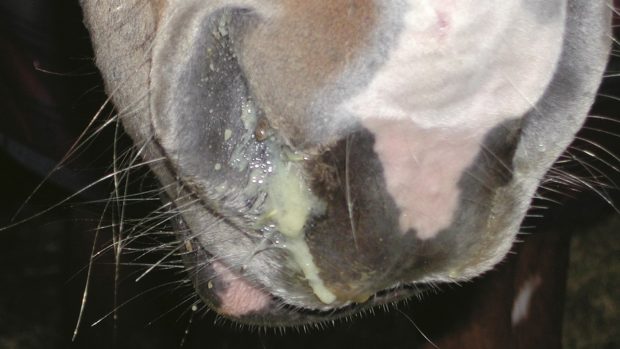The Suffolk Punch Trust has launched a public fundraising appeal in a bid to rescue a 100-year-old stud and help secure the future of the breed.
The trust must raise £3.7million by 31 August 2005 to buy the Colony Stud at Hollesley Bay, near Woodbridge, in Suffolk, which has been breeding Suffolk Punch horses for the last hundred years. The Prison Service has run the stud since 1938 but it will sell the horses if no buyer takes over the facilities within the next 10 months.
While the stud is not the only place in Britain where Suffolk Punch horses are bred, it plays a crucial role in providing help and advice to other breeders.
“Despite a huge upsurge in interest, numbers of Suffolk horses are small, and can only be increased by the breeding of more foals,” TV presenter Paul Heiney explained at the launch of the public appeal, which took place at the Suffolk Agricultural Association’s Showground in Ipswich on 10 November.
“This is not always easy; it is invariably expensive, and has an uncertain outcome. It’s not like breeding pups from dogs; it needs specialist knowledge and skills, all of which have been in practice at Hollesley Bay for many years. It would be a tragedy if they were lost.”
The Suffolk Punch Trust intends to buy the stud’s horses, buildings and 180 acres of land from the Prison Service to set up a permanent facility at Hollesley Bay. The project, which includes developing an education and heritage centre and opening the stables to the public, is expected to cost in the region of £3.7 million and has attracted interest from the Heritage Lottery Fund.
“It’s a fair old chunk of money that we need to raise. We have already raised about £340,000 and we are talking to a number of funders to raise the rest,” says Project Manager John Marsh. “We had a meeting with the Heritage Lottery Fund, who are interested in supporting [it]. The application will go in within the next 14 days and they will consider it in their June meeting. [The Lottery] should hopefully fund 75% of the cost.”
The England Rural Development Fund also expressed interest in backing the project, which may have a beneficial impact on rural communities in Suffolk and throughout East Anglia, but the trust can’t make an application until it obtains planning consent for the stud’s proposed redevelopment. The local authorities are now considering the case and should give or deny consent by the end of January 2005.
In any case, the trust must raise another £600,000 on its own, which is why it launched its public appeal. The initiative has been backed by the Princess Royal and has already raised £12,000 in just over two weeks.
“Some funders have told us that they’ll be interested [in supporting us] if we get the Lottery money. And of course the public appeal goes on,” says Marsh, who is “more than hopeful” that the trust will be able to save the Hollesley Bay stud.
The trust has also made contingency plans in case it doesn’t succeed in raising all the money it needs by the 31 August deadline.
“We have plans to do part of the project now and the rest later. The immediate requirement is to buy the land, develop a visitor building which also includes a lecture theatre and classrooms, and alter the stable buildings so the public can have access,” explains Marsh. “The rest may have to wait. There’s a covered arena and rural workshops [which] we don’t need straight away. Obviously, it would be more cost-effective to do it now, but if we can’t, we can’t. ”
For information on how to make a donation to the appeal, please contact the Suffolk Punch Trust (tel: 01953 714123).




